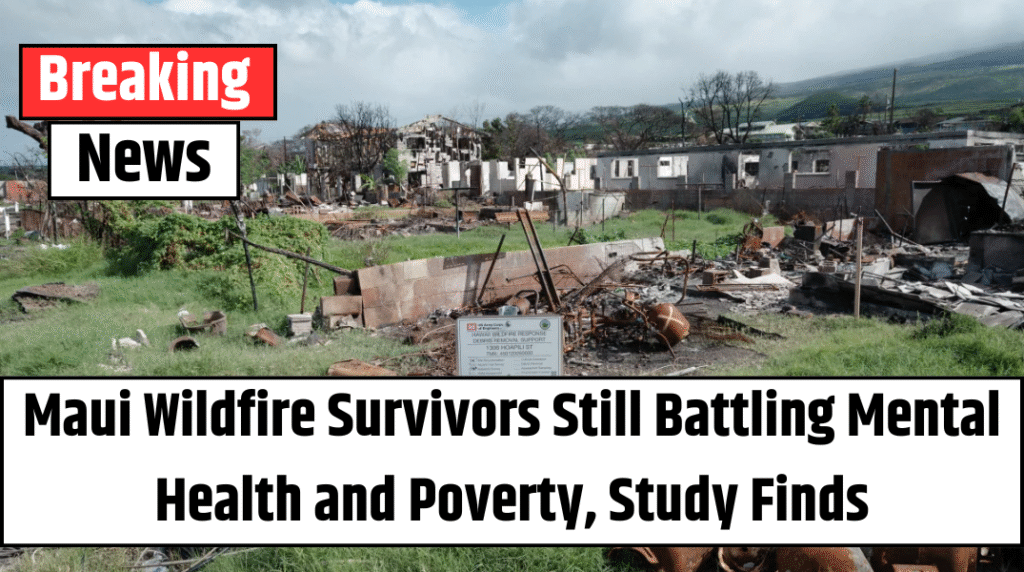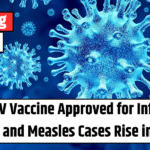Nearly two years after the devastating wildfire tore through Lahaina, West Maui, new research reveals that the road to recovery remains long and riddled with challenges. From declining mental health to growing food insecurity and unresolved housing instability, thousands of survivors continue to grapple with the aftermath of one of the deadliest wildfires in U.S. history.
According to new findings from the Maui Wildfire Exposure Study (MauiWES) — a landmark project led by the University of Hawaiʻi and community partners — survivors are experiencing significant and persistent health issues, many of which have intensified over time.
Alarming Mental Health Fallout
Among the 2,000 survivors tracked, nearly half of the adult participants report symptoms of depression, including chronic fatigue, guilt, hopelessness, and sleep disturbances. One in four struggles with anxiety, and alarmingly, suicidal thoughts have quadrupled since before the fire.
“This is not just a post-disaster slump,” said Dr. Nalani Kawena, a clinical psychologist working with impacted families. “We’re looking at a mental health crisis fueled by continued displacement, job loss, and environmental trauma.”
Children in Distress: A Growing Concern
The study also sheds light on a previously underreported group — children. With nearly 200 participants aged 10 to 17, researchers found 45% show symptoms of PTSD, and half meet clinical criteria for depression. Girls and children from Filipino, Latino, and Asian communities are disproportionately affected.
“These kids are not just struggling with memories of the fire — they’re carrying the weight of ongoing instability,” said Hoku Alamea, a youth counselor on Maui. “We need trauma-informed care in every school, in every community hub.”
Health Declines Extend Beyond the Mind
The health toll isn’t limited to mental well-being. Physical issues have become increasingly prevalent, particularly among those still living near areas with residual ash and debris. Over 70% of adults now report high blood pressure, and 25% have impaired lung function, likely linked to prolonged exposure to wildfire pollution.
“There’s an emerging pattern of cardiovascular and respiratory illness among survivors that we cannot afford to ignore,” said Dr. Keahi Wong, a physician in Maui County. “It’s a public health time bomb.”
Also Read – Study Warns Medicaid Cuts Could Leave Millions Without Health Coverage
Daily Struggles: Housing, Food, and Jobs
The socioeconomic impacts continue to exacerbate the crisis. Over 40% of survivors lack stable housing, and one in four job-seekers remains unemployed. The rate of food insecurity has doubled since the fire — nearly one in four adults regularly skip meals or go entire days without eating due to financial strain.
“We’ve gone from surviving a fire to surviving poverty,” said Kainoa Silva, a displaced resident who now volunteers at a local food bank. “Our physical homes are gone, but now our mental and physical health are at risk too.”
Healthcare Gaps Remain
Despite efforts to expand coverage, one in six adults in the study remain uninsured — with rates as high as 45% among Latino residents. Nearly a third of respondents still face challenges accessing medication or medical appointments.
Meanwhile, Maui residents are bracing for the relocation of debris from Lahaina to central Maui, stoking fears of renewed exposure to toxins. “People are terrified this will undo any healing we’ve managed so far,” Silva added.
A Hidden Epidemic of Gender-Based Violence
Adding to the crisis, a separate investigation revealed that domestic violence and sexual exploitation surged in the fire’s aftermath — particularly among displaced women and girls. This underlines the urgent need for gender-sensitive, trauma-informed services as part of long-term recovery planning.
Glimmers of Hope: Community Bonds Remain Strong
Despite the hardships, there is one powerful constant: social support. The study found that 90% of participants report moderate to high levels of community connection, rooted in values of ohana (family) and cultural solidarity.
“Community resilience is real, and it’s keeping people afloat,” said Ruben Juarez, professor of economics at UH and study co-author. “But we can’t expect emotional strength alone to rebuild lives. We need policy, investment, and equity-driven care.”
A Call for Sustained Recovery
Experts are calling for expanded long-term investments in health care access, chronic disease monitoring, mental health services, and food security. There’s also a push for more culturally responsive interventions, particularly in schools and underserved neighborhoods.
“This fire was a tragedy, but what happens now will define the future,” said Dr. Kawena. “If we ignore these warning signs, we’re not just failing Maui — we’re failing every community on the frontlines of climate disasters.”
As climate-driven disasters become more frequent and intense, the Maui story serves as a sobering reminder: recovery isn’t a moment — it’s a long and urgent process.



